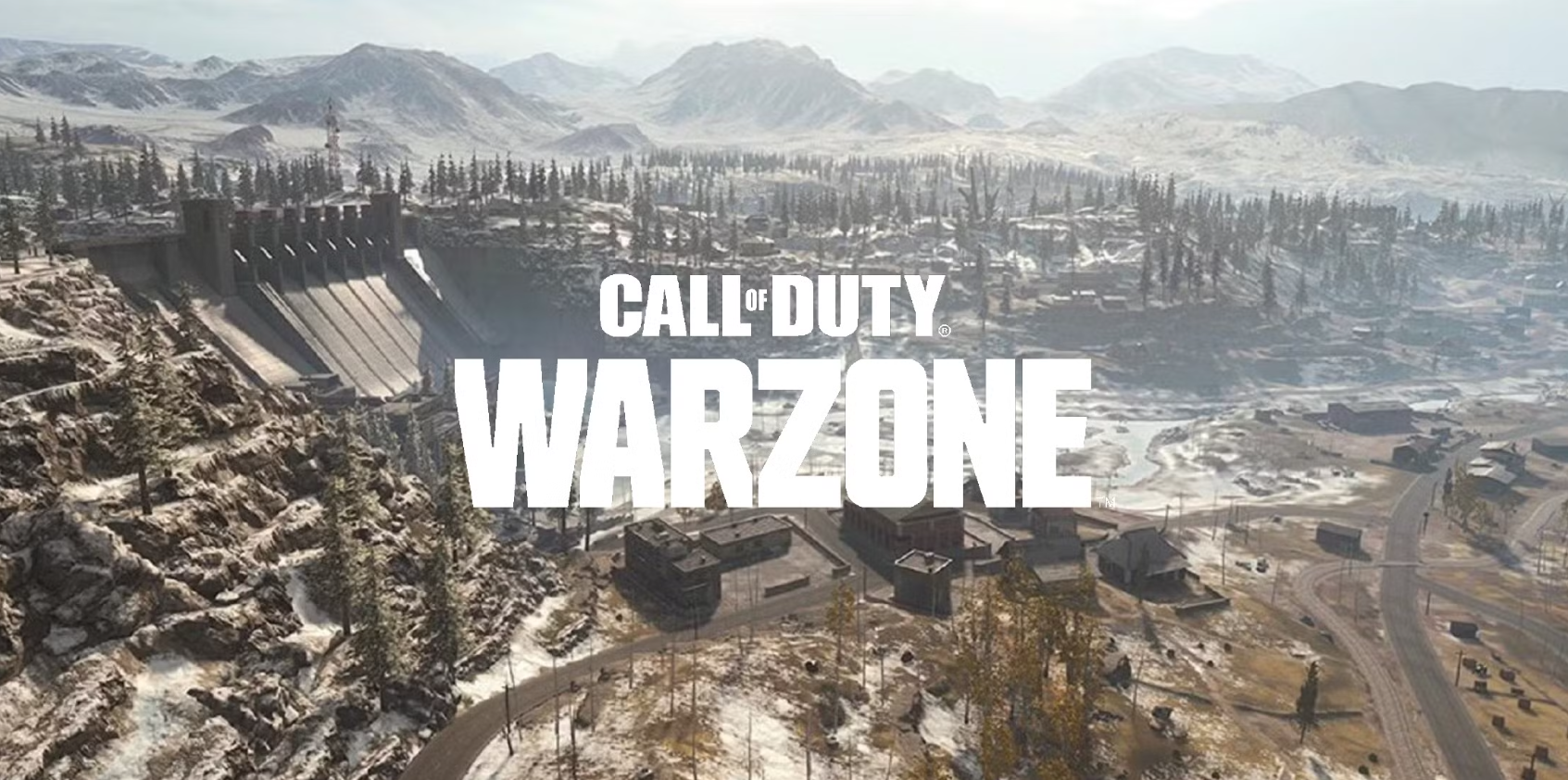2027 Call of Duty Game May Break Recent Series Tradition

Sledgehammer Games, known for their work on the Modern Warfare series, is reportedly set to take the helm for the upcoming Call of Duty title scheduled for 2027. This news has sparked considerable excitement and speculation within the gaming community. Interestingly, rumors suggest that this new installment may not follow the anticipated path of continuing the current subseries. Instead, it could signal a return to a different and perhaps unexpected Call of Duty subseries, a move that would break from recent traditions established in the franchise.
For years, Call of Duty titles have adhered to a familiar cycle, often revisiting popular subseries that fans expect. However, the potential shift in focus for the 2027 game indicates a willingness from the developers to innovate and surprise players. This could open up new gameplay experiences, narrative directions, and settings that have not been explored in recent installments. As anticipation builds, both fans and industry analysts are eager to see how Sledgehammer Games will redefine the franchise and what this means for the future of Call of Duty.
Table of Contents
Anticipating Change: The Future of Call of Duty’s Release Strategy
In recent years, Activision has established a consistent pattern for the release of its Call of Duty titles, particularly with regard to the franchise’s various subseries. This two-year cycle strategy has allowed for a streamlined approach to game development and marketing, enabling players to anticipate new content and features while creating a sense of continuity within each subseries. The approach has been particularly evident in the Modern Warfare and Black Ops franchises, which have seen consecutive yearly releases that build on the narrative and gameplay elements introduced in previous titles. For instance, Activision successfully released two Modern Warfare titles in 2022 and 2023, capitalizing on the nostalgic and competitive appeal of the series. This allowed players to engage deeply with the Modern Warfare universe, progressing through the storylines, unlocking new operators, weapons, and cosmetics, and honing their skills across multiple game modes. The two-year cycle not only fosters player engagement but also facilitates the transfer of items and progress from one game to the next, enhancing the overall gaming experience.
However, recent rumors indicate that this well-established release pattern may be on the verge of change. According to a post by industry leaker Hope on Twitter, the future of the Call of Duty series could see significant shifts in its development structure. Specifically, the upcoming titles for 2026 and 2027 are set to be developed by Infinity Ward and Sledgehammer Games, respectively. This information has sparked speculation and excitement among the gaming community, as fans eagerly await how these changes will impact their beloved franchise. The 2026 entry is rumored to be Modern Warfare 4, which aligns with the existing two-year cycle strategy. This would allow players to continue their engagement with the Modern Warfare storyline, further developing characters and narratives that have captivated audiences. However, the revelation regarding the 2027 title is particularly intriguing. Hope has indicated that this upcoming game will not follow the traditional format of being a direct sequel to its predecessor. Instead, it appears that Activision may be looking to break from the recent trend of consecutive Modern Warfare releases, which have defined the franchise over the past few years.
This potential shift raises several questions about the future direction of Call of Duty. Fans may wonder what subseries the 2027 title will explore and how it will differentiate itself from prior installments. The possibility of returning to a different subseries could reinvigorate interest in the franchise, allowing developers to experiment with new gameplay mechanics, settings, and narratives. It also presents an opportunity to introduce fresh characters, story arcs, and environments, which could appeal to both long-time fans and newcomers to the series. Breaking away from the established pattern could also signify a broader strategy for Activision as it seeks to adapt to changing player expectations and industry trends. As gaming technology evolves and player preferences shift, the need for innovation becomes increasingly important. By diversifying the Call of Duty lineup, Activision may be aiming to keep the franchise relevant in a competitive market, where numerous other titles vie for players’ attention.
Moreover, this potential change in the release strategy could also have implications for the broader gaming ecosystem. With various studios contributing to the franchise, each with its unique strengths and creative visions, fans might experience a richer and more varied gaming landscape. This could lead to innovative gameplay features, enhanced graphics, and more immersive storytelling, further solidifying Call of Duty’s position in gaming culture. As the gaming community awaits further announcements and details from Activision, the anticipation surrounding the 2027 Call of Duty title continues to grow. Players are eager to see how Sledgehammer Games will approach this new project and what surprises it may hold. Will it be a return to a beloved subseries, or will it break entirely new ground? The answers to these questions will shape the future of the franchise and determine how it resonates with fans in the years to come. In conclusion, the evolution of the Call of Duty series is a testament to the franchise’s ability to adapt and thrive in a dynamic gaming landscape. While the established two-year cycle has served it well, the potential shift in release patterns signifies an exciting new chapter. As Activision and its studios prepare to unveil their plans for 2026 and 2027, fans can only speculate about the innovations and experiences that await them in the next installment of one of the most iconic franchises in gaming history.
Call of Duty Could Return to a Neglected Subseries
Hope’s recent insights into the future of Call of Duty have stirred excitement and speculation among fans. With the confirmation that the 2027 installment won’t simply be another Modern Warfare title, discussions about what direction the franchise might take have intensified. The potential for a return to Advanced Warfare or the introduction of something entirely new opens up numerous possibilities for gameplay, narrative, and even technological advancements. Advanced Warfare, released in 2014, was notable for its innovative mechanics, particularly the introduction of exoskeletons that enhanced player mobility and combat options. This title also marked a shift in the series’ storytelling approach, incorporating a more futuristic setting and a narrative that resonated with contemporary themes of technology and warfare. The game’s protagonist, Jack Mitchell, played by Kevin Spacey, navigated a world where private military corporations wield significant power. If Sledgehammer Games decides to revisit this universe with Advanced Warfare 2, it could build upon the original’s foundation while exploring new storylines and gameplay mechanics.
The idea of a sequel to 2013’s Call of Duty: Ghosts, on the other hand, presents a different set of opportunities. Ghosts was known for its engaging multiplayer experience and the introduction of the squad system, which allowed players to customize their own AI-controlled teammates. While the game received mixed reviews, there was a dedicated fanbase that appreciated its storyline and gameplay innovations. A sequel could delve deeper into the narrative established in the first game, perhaps addressing unresolved plot points and further developing the characters that fans came to know. Moreover, the potential of a prequel to Advanced Warfare adds another layer of intrigue. This approach could explore the origins of the technology and conflicts that shaped the game’s universe, providing players with a richer context for the events they encounter. By focusing on the backstory, Sledgehammer Games could introduce new characters and factions, creating a complex narrative tapestry that enhances player engagement.
It’s also worth considering how the gaming landscape has evolved since the release of Advanced Warfare. With advancements in graphics, artificial intelligence, and multiplayer experiences, a new entry in this subseries could leverage modern technology to deliver a more immersive experience. Features like enhanced environmental interactions, more sophisticated AI behaviors, and expanded multiplayer modes could all contribute to a fresh take on the Advanced Warfare concept. As for the broader implications of these potential changes, they might signify a strategic shift for Activision as it seeks to maintain its relevance in an increasingly competitive market. The gaming industry has witnessed the rise of various franchises that challenge the dominance of Call of Duty, pushing Activision to innovate and adapt. By exploring different subseries or introducing new concepts, the company may aim to captivate both loyal fans and new players alike. Additionally, fan engagement will play a crucial role in shaping the direction of the franchise. The reaction to Hope’s insights illustrates the diverse opinions within the community. Some fans are eager for a return to the fast-paced, futuristic combat of Advanced Warfare, while others are nostalgic for the narrative and gameplay elements of Ghosts. This feedback could influence the developers’ decisions as they navigate the complexities of player expectations and market trends.
Ultimately, it remains unclear how the 2027 title will shape up. The excitement surrounding the potential return of Advanced Warfare or the introduction of an entirely new concept reflects the enduring appeal of the Call of Duty franchise. Whether players are eager to revisit familiar worlds or explore uncharted territories, the next installment promises to be a significant moment in the series’ history. In conclusion, the future of Call of Duty is filled with possibilities. As Sledgehammer Games prepares to take the reins for the 2027 entry, fans are left to speculate about what lies ahead. Will it be a sequel to Advanced Warfare, a return to Ghosts, or something completely new? Whatever the outcome, the decisions made in the coming months will undoubtedly shape the trajectory of this iconic franchise for years to come, and players will be eagerly watching for more news and updates as the release date approaches.




